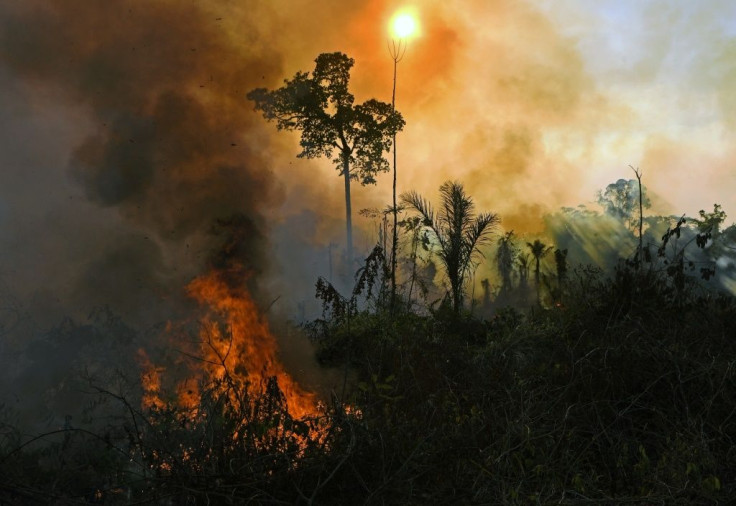August Amazon Fires Remain Near Highs Under Bolsonaro
The number of fires in the Brazilian Amazon as the burning season opened in August fell slightly from 2020, but remained close to the near-decade highs seen under President Jair Bolsonaro, new data showed Wednesday.
Brazil's space agency, INPE, recorded 28,060 fires in the Brazilian Amazon last month -- down 4.3 percent from August 2020, but well above the average of 18,000 for the decade before Bolsonaro took office in 2019.
The far-right president, who has pushed to open protected lands to agribusiness and mining, has presided over a surge of deforestation in the Amazon.
Under his administration, Brazil's share of the Amazon has lost around 10,000 square kilometers (3,860 square miles) of forest cover a year -- an area nearly the size of Lebanon.
That is up from around 6,500 square kilometers per year during the previous decade.
The number of fires has surged, too.
"The amount of fires registered each August has reached absurd levels since 2019," said Cristiane Mazzetti, of environmental group Greenpeace, condemning a new "Bolsonaro standard" of destruction.
Fires often increase in the Amazon when dryer weather arrives from around August to November, as farmers, ranchers and land speculators fell trees, then burn them to clear the land.

Scientists say natural wildfires are virtually non-existent in the famously wet Amazon.
In 2019, Bolsonaro's first year in office, a sharp rise in Amazon fires caused worldwide outcry and fueled fears for the future of the world's biggest rainforest, a key resource in the race to curb climate change.
INPE recorded 30,900 fires in August 2019, up from 10,421 the year before.
The agency's figures go back to 1998. The worst August on record was 2005, with 63,764 fires.
Ane Alencar, director of science at the Amazon Environmental Research Institute (IPAM), said this year's fire season would depend on climate factors such as rainfall.
But "we are still at about the same level as in 2019," she told AFP.
"It's like we're getting used to these very high numbers."
Environmentalists are also concerned over a sharp increase in fires in the huge Pantanal wetlands south of the Amazon, around a quarter of which was devastated by fires last year.
The region is again facing a record drought this year.
© Copyright AFP 2024. All rights reserved.







